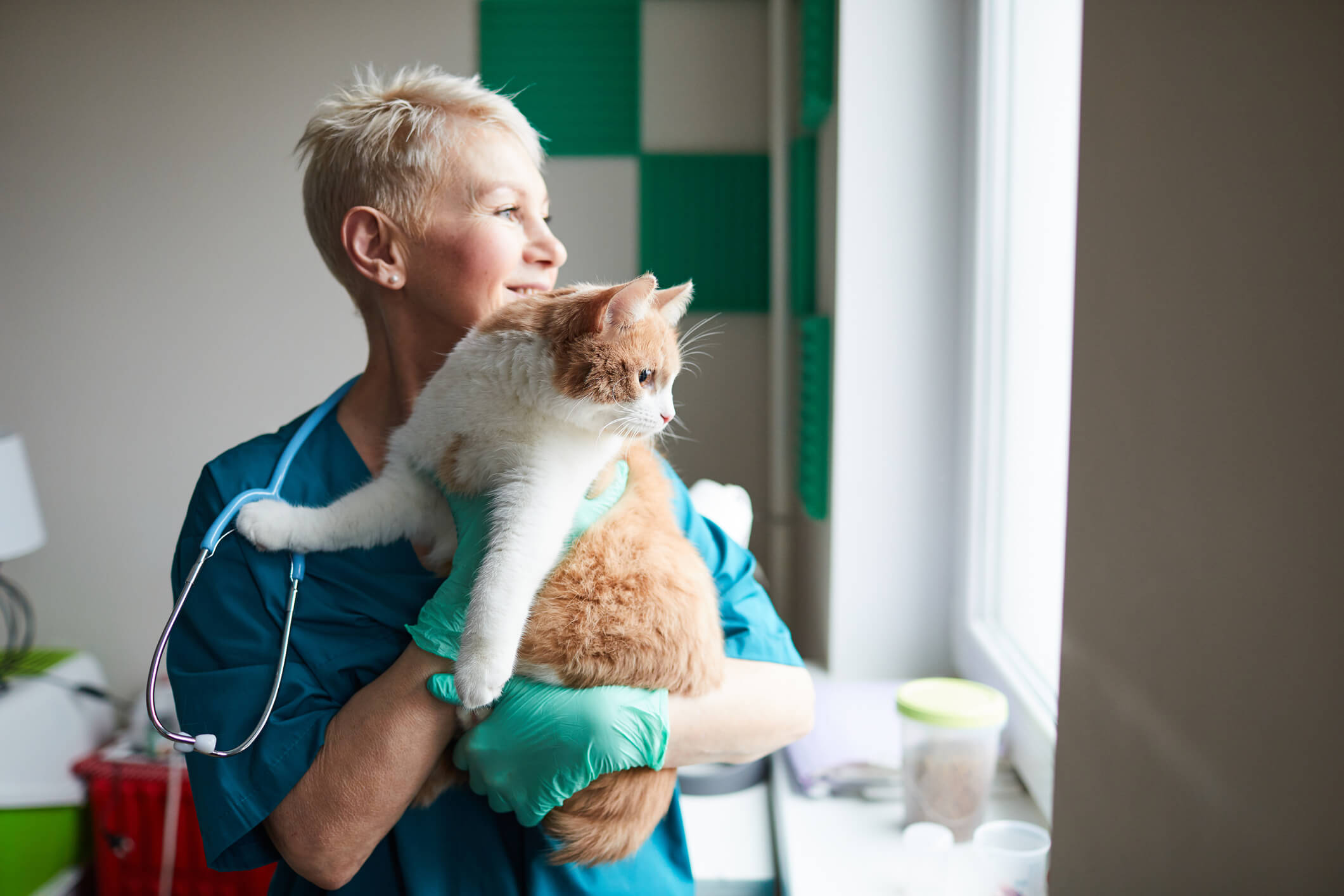
Integrative Medicine: Start Asking Your Vet What You Can do at Home
There’s no question you want the best for your furry friend. When it comes to their healthcare, you most likely let your veterinarian take the reins during your pet’s annual checkup and follow their advice for medical procedures or treatments.
But when it comes to holistic healthcare for our furry friends, many approaches can be taken at home—not just in the vet’s office once a year. Integrating alternative care to support your vet's advice and prescription is a critical part of integrative veterinary medicine, and your routines at home play an integral role.
What is integrative veterinary medicine?
At its core, integrative veterinary medicine is a form of veterinary care that combines highly effective medical care from both conventional (or traditional) medicine and alternative (or holistic) medicine.
This combined philosophy means that integrative medicine is more than just medicine. It’s an approach to veterinary care that intends to set pets up for the healthiest and happiest life possible. Through integrative medicine, vets may be able to prevent serious illness, treat injuries and diseases when they occur and utilize supportive care to improve a pet’s comfort and quality of life.
When a vet practices integrative medicine, they do not solely rely on diagnostic tests and pharmacological treatments like medication and surgery to determine and treat your pet’s ailments. They might also consider things like your pet’s environment, current or former health problems and pain, nutrition and lifestyle. If there’s a problem, they might prescribe a blend of conventional and alternative treatments designed to cure the problem and improve your pet’s comfort and health.
Integrative medicine has the potential to help any pet—young or old, sick or healthy—by taking their body, mind and spirit into account and delivering more comprehensive healthcare. However, it’s particularly beneficial for pets with complex ailments that might have many underlying factors or influences, including arthritis and gastrointestinal disorders. It can also provide supportive care for incurable conditions like chronic kidney disease and cancer, so your pet lives a more comfortable life until the end.

Ways to incorporate integrative medicine at home
There are many integrative veterinary approaches that should always be performed by a professional, including complex surgical procedures and things like acupuncture or chiropractic. However, even though integrative medicine is often referred to in the context of a veterinarian’s office, pet owners can—and should—play a role in delivering integrative medicine to their furry friends at home.
There are numerous holistic approaches pet owners might adopt that can support the traditional and alternative medical care their vet administers at the clinic. Ask your vet whether one or many of these at-home care routines might benefit your pet, both to prevent and treat illnesses, and how to use them to meet your pet’s needs.
- Supplements: Herbal medicine is a popular practice for both humans and pets. There are all kinds of herbal supplements designed for pet ailments, ranging from those that ease stress and anxiety, to those that bolster the immune system, to those that detoxify organ systems. Not all herbal supplements will be appropriate for pets, but some cats and dogs might benefit from herbal supplements before or in tandem with conventional medications or other therapies.
- Probiotics: Probiotics are another type of supplement that may have far-reaching effects on pets. These supplements contain beneficial bacteria that help restore balance in your pet’s colon. Beyond alleviating chronic gastrointestinal problems, probiotic supplements might also strengthen your pet’s immune system, improve the skin and coat and bolster their overall health.
- Nutrition: All pet owners and vets should emphasize good nutrition for pets—whether they practice integrative medicine or not. However, nutrition plays an important role in integrative medical treatments when pets have an ailment. Specially formulated diets are known to support pets suffering from both acute and chronic health conditions, including diabetes, kidney disease, food allergies and more.
- Exercise and rehabilitation plans: Exercise is another key component of all pets’ health, but a specifically programmed at-home rehabilitation plan might be necessary to help pets restore mobility following an injury or ailment. Your vet can work with you to detail an exercise regimen that will help your pet’s body get stronger and more mobile to potentially speed up recovery.
- Massage: Therapeutic massages can also be administered at home (in addition to or in lieu of professional appointments). If your vet is skilled in targeted massage therapy, they can teach you how to administer gentle movements to promote blood flow, muscle recovery, muscle relaxation and much more for sick or recovering pets.
Part of integrative veterinary medicine is striking a balance between conventional and alternative treatments—using the best of both worlds to deliver the best possible care to our furry friends. A huge piece of this care depends on ongoing treatment at home, whether through healthy lifestyles, supplements or other specialized therapies. Discuss the possibilities for holistic care with your vet to help your pet live their happiest, healthiest life.


